Israeli salad is a simple Middle Eastern salad made with bell peppers, cucumbers, tomatoes, red onions, and fresh herbs. You have a delicious and healthy salad when all of these tastes and juices come together.
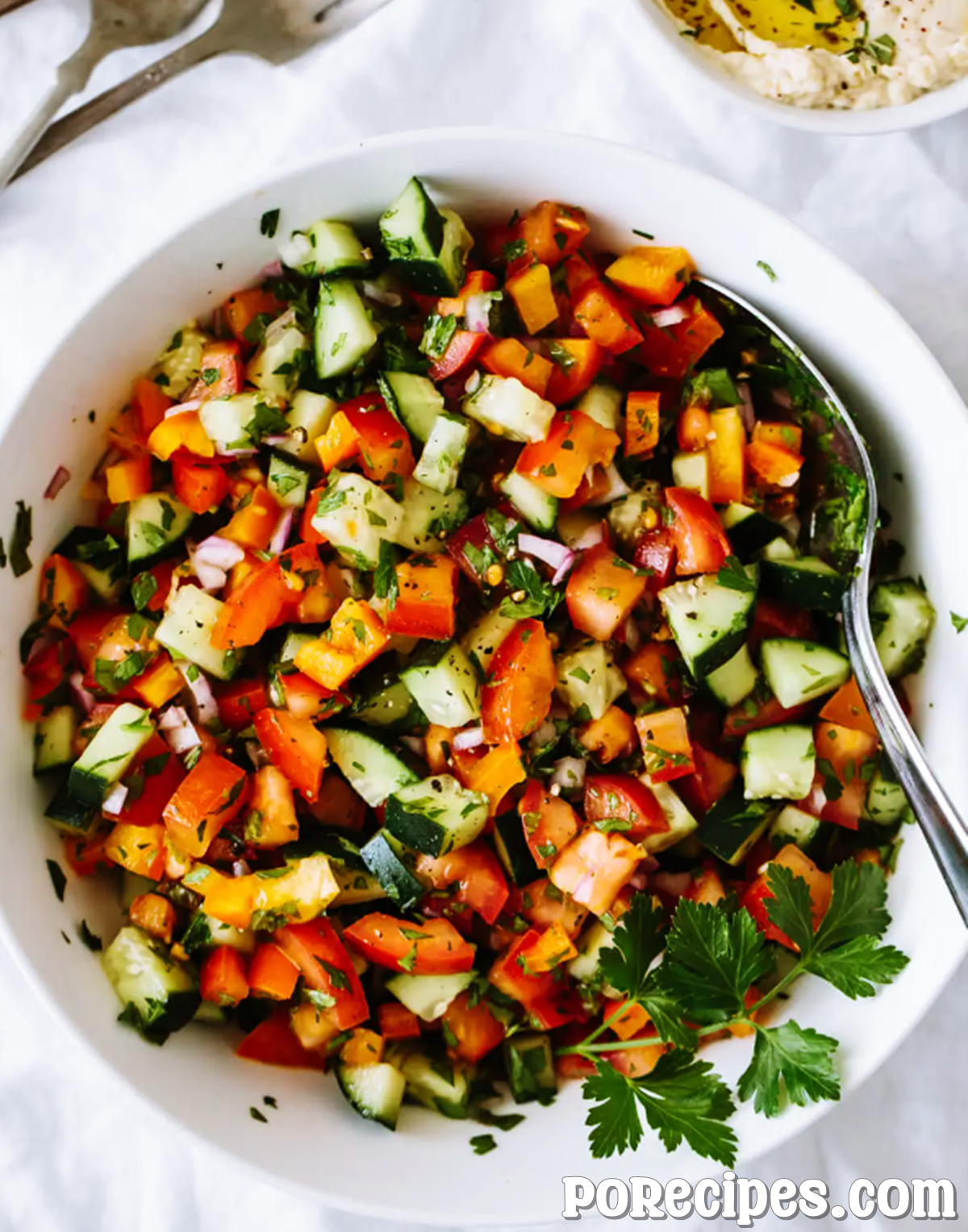
Want to know why I like Israeli salads so much? It's easy, fresh, tasty, and good for you. You can make a delicious salad that goes well with any meal with just a few items and many herbs. Israeli salad is a popular lunch or dinner dish, but I've also seen it often at breakfast buffets. Veggies for breakfast? Yes, thanks. I'll tell you something else: Tel Aviv has some of the best breakfast spreads in the world.
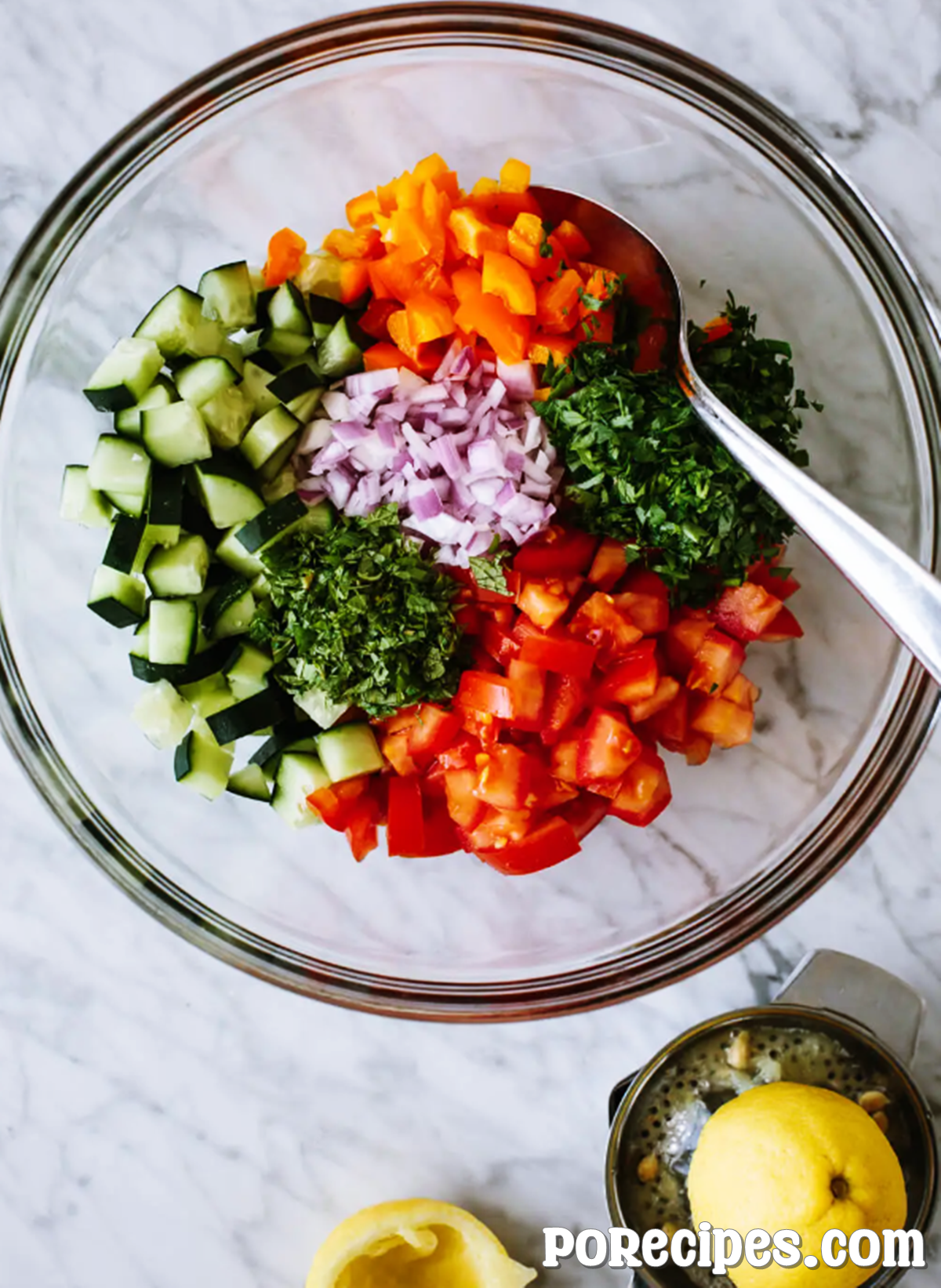
ISRAELI SALAD INGREDIENTS
The simplicity of making this salad is its best ingredients. It's a lot like a Greek salad but doesn't have cheese or an Israeli twist.
- Tomatoes: Grab some vibrantly colored Roma or cherry tomatoes.
- Persian cucumbers are best, but English cucumbers can also be used.
- Bell pepper: Any color bell pepper will do; I'm just choosing orange to brighten the hue.
- Red onion: Red onion is the best salad option because of its sweeter flavor.
- Parsley and Mint: Israeli cuisine emphasises fresh herbs; this salad recipe is no exception.
- Lemon juice and olive oil: Add a burst of acidity and flavor that will help everything blend.
- Salt and Pepper: Season with pepper and salt to your liking.
Once your ingredients have been finely chopped, combine them in bowl to mix the pepper, salt, lemon juice and olive oil. Stir, and then savour. Yes, it is that simple.
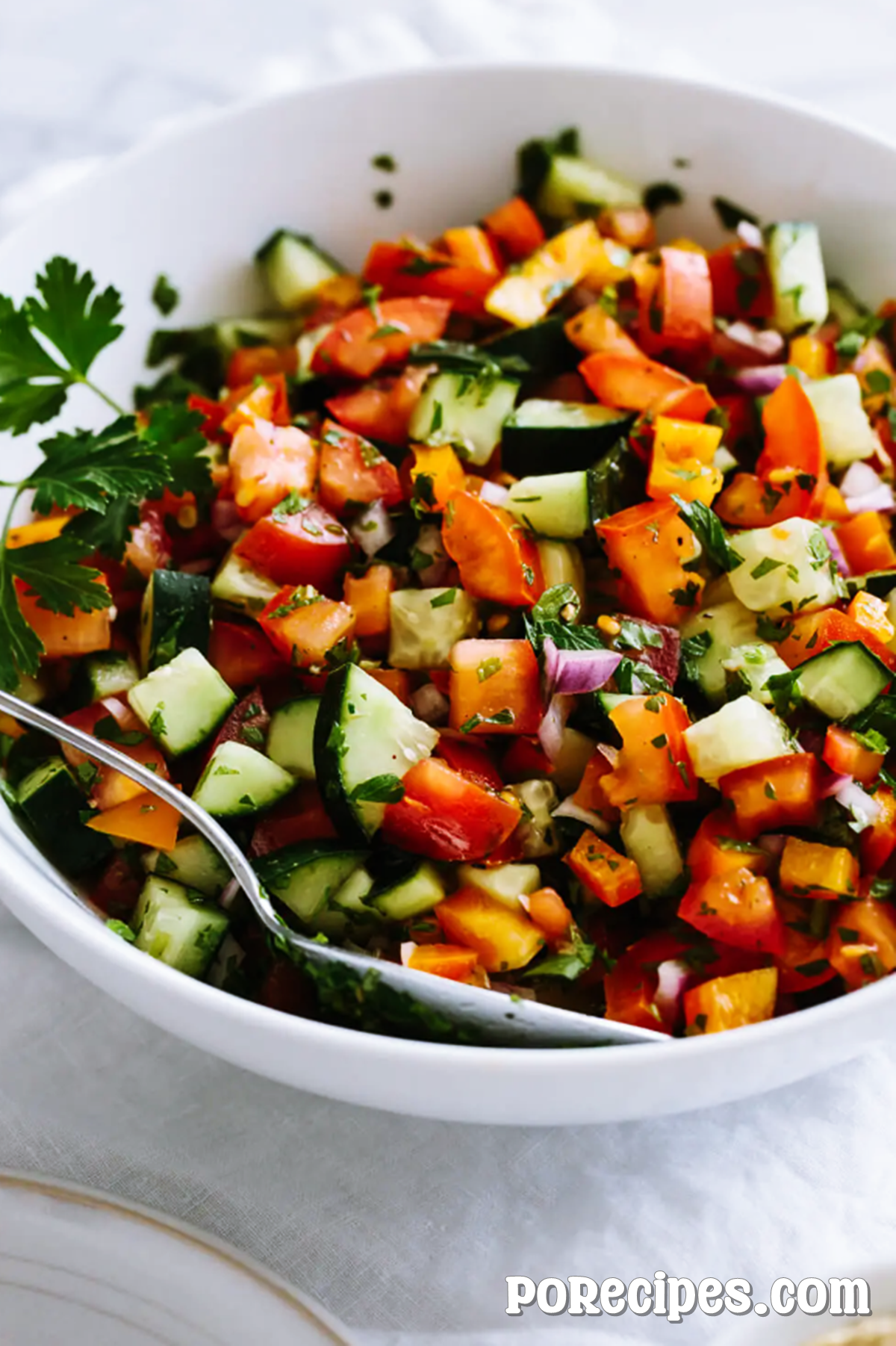
EXTRA SALAD TIPS
- Everything should be chopped into bite-sized pieces; ideally, the vegetables should all be roughly the same size. It makes it simpler to combine different vegetables on one fork.
- Add more spices: You can modify this recipe and include a dash of common Middle Eastern seasonings like sumac or za'atar. It's wonderful either way, so keep it straightforward.
- Let it sit: You may serve this salad immediately, but it tastes delicious after sitting for a few hours. The flavors will only get better. You may keep it in the freezer for up to two days.
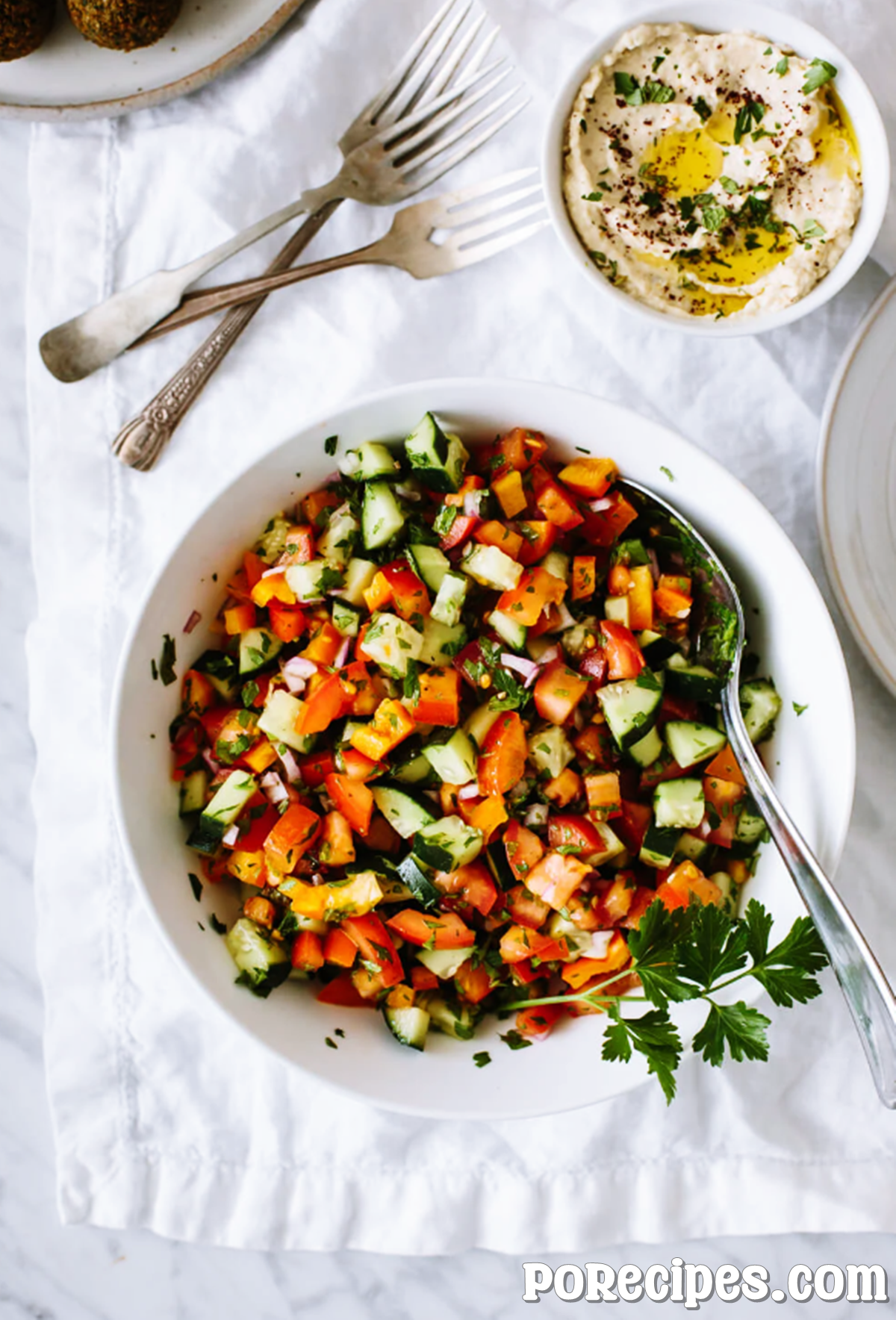
Benefits:
The salad's ingredients each have particular health advantages. Fresh Persian cucumbers (peeled on) have no fat and are high in water and fiber. Fresh tomatoes offer vitamin C, A, and lycopene, which fight cancer (organic tomatoes have up to three times as much lycopene as non-organic tomatoes!). Chromium, a trace mineral that aids cells in adequately responding to insulin, is abundant in onions.
Onions have been demonstrated to help lower cholesterol, blood pressure, and blood sugar. Vitamin K is abundant in fresh parsley. Folate, antioxidants, and vitamins C and A are also present. Vitamin C, antioxidants, and potassium are all abundant in lemon juice. It has a built-in diuretic effect. A good source of MUFAs (monounsaturated fatty acids), olive oil can aid digestion.
FAQ's
What does "Israeli Salad" mean?
Jewish people who moved to the Levant at the end of the 19th century found that cucumbers and tomatoes grown in the area were used in a famous local salad. It became famous in the kibbutzim, where Jewish farmers grew food and had it on hand. Most of the time, the word "Israeli Salad" is used outside of Israel.
How are Israeli salad and Greek salad different?
In Israel, cucumber, tomato, bell pepper, red onion, and herbs are often mixed in a salad. Depending on who you ask, this salad's roots make it either an Arab or Israeli salad (this is still not a comment on foreign policy). A Greek Salad has lettuce, olives, and feta cheese.
What is in a Jerusalem salad?
You only need to make Jerusalem Salad: tomato, cucumber, red onion, and parsley. This dish is full of taste and is easy to make. Perfect for putting on pita sandwiches with Authentic Greek Tzatziki sauce, adding to Mediterranean bowls, or eating with falafel!
What is the national food of Israel?
Falafel is another typical food in Israel. It is made from ground chickpeas and spices that are then shaped into balls and deep-fried. This Middle Eastern street food is famous all over the area but is the "National Dish" of Israel.
Conclusion:
My kitchen is always stocked with Israeli salad. It's easy to make, cheap and tastes better than expected. In the summer, I serve it with fish or kebabs that I've cooked. I use it as a healthy side dish to break up heavy meals when cold outside. I sometimes serve it for breakfast, too. It goes well with an egg, cheese, and herbs quiche.

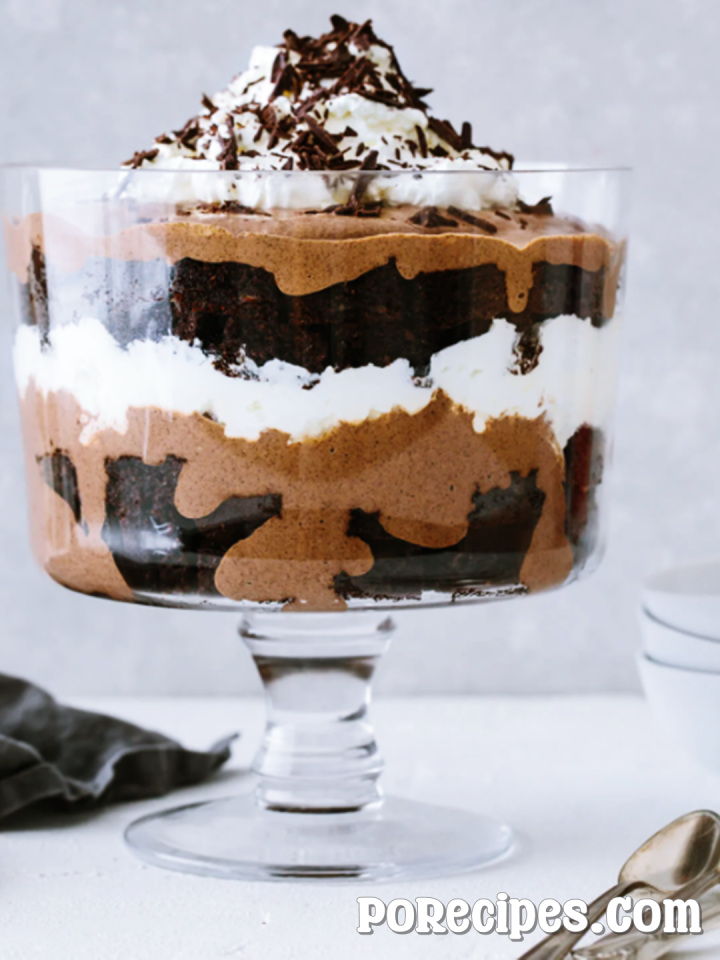


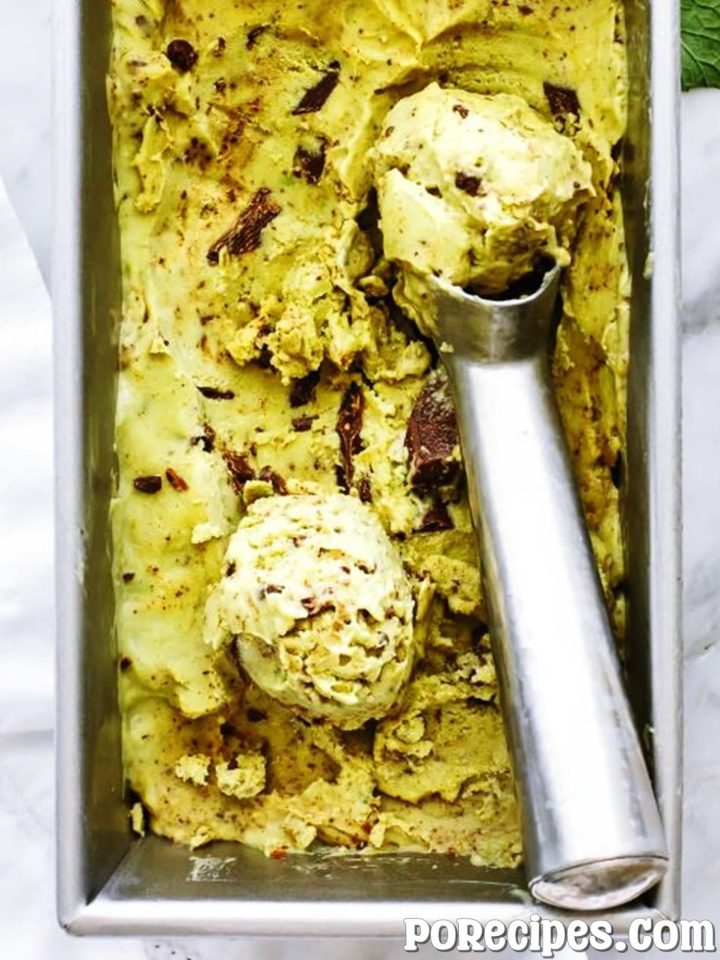
Leave a Reply